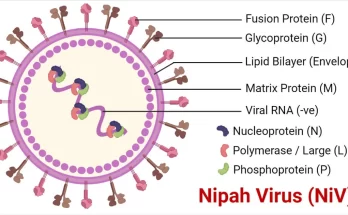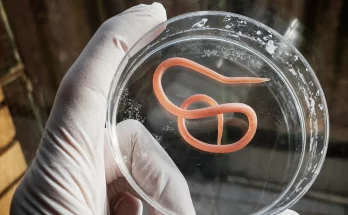By Akila Wijerathna Yapa
A multidisciplinary research team lead by Prof. Nilu Goonetilleke at the University of North Carolina at Chapel Hill (UNC), will lead the study testing a therapeutic vaccine for HIV at the University of North Carolina at Chapel Hill and has been awarded more than $5.6 million from the National Institutes of Health (NIH) to test a therapeutic vaccine in people living with HIV. The primary goals of the five-year study are strengthening and redirecting the immune system’s anti-HIV response.
She has said that the first generation of this vaccine produced an impressive immune response in people living with HIV and the team will now test the second generation of this vaccine that they hope will be even better at targeting HIV reservoirs in the body.

In the course of HIV infection, the fate is set early, since the early immune response is an important factor in determining the clinical course of the disease. Most patients are infected with a single transmitted founder virus.
There has been a substantial increase over the past decade in understanding of where and how HIV persists when someone is on antiretroviral therapy. It is now clear that integration of the HIV genome into long-lived resting cells is a major barrier to a cure. This state is called HIV latency. Latency-reversing agents have shown promise in awaking these dormant reservoirs. If the vaccine proves successful in boosting and controlling the immune system’s response to HIV, it could eventually be paired with latency-reversing agents to clear the virus.
The study will recruit patients at UNC who are living with HIV, but who are virally suppressed due to antiretroviral therapy. Goonetilleke will work with colleagues across campus, including the Center for AIDS Research, the Division of Infectious Diseases and the Department of Biostatistics. The University of Oxford will provide the vaccine.
Nilu Goonetilleke, Ph.D., is an assistant professor in the Departments of Medicine, Microbiology and Immunology at UNC. Also she has served a senior immunologist responsible for coordinating the NIH Center for HIV-AIDS Vaccine Immunology (CHAVI) studies within the Weatherall Institute of Molecular Medicine, University of Oxford, UK. Her research focuses on understanding the immunology of infectious diseases and vaccine design, with a particular focus on the response of T cells to infections, particularly HIV-1. Goonetilleke and the CHAVI team has studied the T cell immune response to HIV in 60 patients with acute HIV infection and examined the evolution of the T cell immune response in the context of other immune responses and changes in the virus. Studies in lab are aimed at gaining understanding of the variable efficacy of CD8 T cells in natural infection.
Goonetilleke has said their next step would be a combination study investigating a latency-reversing agent and the vaccine, where they want to improve clearance of these reactivated cells and reduce the viral reservoir ultimately.
About the Author-
Akila Wijerathna Yapa,
Graduate Research Scholar at the Hebrew University of Jerusalem




